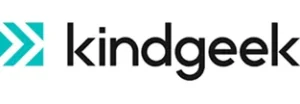Top Custom Software Development Companies in 2026
- This blog is updated on February 18, 2025
By 10Pearls editorial team
A global team of technologists, strategists, and creatives dedicated to delivering the forefront of innovation. Stay informed with our latest updates and trends in artificial intelligence, advanced technology, healthcare, fintech, and beyond. Discover insightful perspectives that shape the future of industries worldwide.
According to Research and Markets, the custom software development market is experiencing tremendous growth. This increase is fueled by businesses like yours seeking to outsource software development for technological agility and expertise to remain competitive in the digital world. However, with so many available options, it can be difficult to determine which software developer is right for your organization.
When choosing a custom software development company, you should prioritize experience, expertise, and a portfolio that aligns with your technical needs. A good partner can deliver scalable, secure, and high-quality solutions in emerging technologies like AI, IoT, and cloud computing. You should also look at the software developer’s communication skills, project management methodology (like Agile or DevOps), and ability to adapt. This blog will explore some of the top custom software development companies you can consider.

Top custom software development companies
The global custom software development market value is projected to grow to approximately USD 334.49 billion by 2034, driven by increasing demand for tailored, innovative and scalable software and AI solutions that drive digital transformation and deliver tangible business value.
Selecting the right software development partner is a critical business decision that can provide a significant competitive advantage and enhance many aspects of enterprise operations. Off-the-shelf solutions may work for certain business functions, but custom software aligned to your specific processes and requirements delivers powerful differentiation through customized functionality, flexibility and scalability, ownership and control, and cost effectiveness in the long run.
Thoughtful selection is essential for success as the best software development partners combine technical expertise with industry understanding to deliver solutions that improve internal and external workflows and experiences. Here we list the top 10 software development companies for 2026, as well as an overview of services these companies generally provide and how to choose the right one for your specific business needs and objectives.
What is included in software development services?
Software development services cover a range of solutions, from strategy and design to deployment and maintenance of digital services and products. Some of the most common services include:
Custom Application Development
Custom software solutions or applications developed for web or mobile devices, designed to address specific business needs and objectives.
Enterprise Software Development
Software, solutions, systems, or platforms intended to serve multiple functions critical for an enterprise’s internal and/or external operations. This includes CRMs, ERPs, SCMs, and HRMs.
Digital Product Development
End-to-end software solution and/or digital product creation where the development company takes almost complete ownership of the software, from ideation and market research to post-deployment modification.
Cloud-Native Development
Development for one or more specific cloud environments, leveraging the full potential of cloud capabilities. This entails specific framework and tool capabilities, cloud-native development, and migration expertise.
AI Development
Developing software around foundational or custom AI/ML models to leverage AI capabilities for a specific business environment or use case. This can also include model retraining and fine-tuning to improve alignment with development goals.
Embedded and IoT Development
Developing solutions and interfaces for IoT devices, sensors, and other specialized hardware, as well as integrating them into an organization's IT infrastructure and operations while ensuring robust security.
Modernization Services
Middleware and API development to surface data and functionalities from legacy systems. This may also involve a complete overhaul and rewriting of legacy code in modern languages and frameworks for better scalability and interoperability.
System Integrations and APIs
Integration of custom-made and off-the-shelf solutions into existing workflows, as well as developing APIs to improve interoperability and third-party integration capabilities of existing systems.
DevOps
Building, deploying, and maintaining DevOps pipelines to streamline the entire software development and deployment lifecycle, enabling easy maintenance and modification of software within an organization.
How to select a software development firm for your business
Choosing a software development partner is a strategic decision that will affect and shape many aspects of your business. The right partner leverages industry expertise, proven methodologies, and innovative thinking to translate strategic vision into technical solutions that drive measurable growth and operational efficiency.
On the other hand, a mismatched partnership can lead to project failure, budget overruns and solutions that are not aligned with business objectives.
Identify Your Software Needs and Requirements
Clearly identify and flesh out your goals and requirements from a strategic business perspective. This can be as simple as what you want the software to do and as granular as identifying exact internal processes you want the software to interact with and transform.
Define Project Scope
Start by identifying all the business units your software may interact with, the requirements of critical stakeholders, and relevant compliance and governance dimensions. Identifying and setting long-term business goals that the project is expected to serve, desired outcomes (and relevant KPIs), and future business needs is critical as well. Collectively, both constraints and aspirations can help you define and shape an outline of the project's scope before you evaluate it from a technical lens with a development partner.
Evaluate Internal Capabilities and Bandwidth
Consider leveraging outsourced developers to fill resource gaps if you have an in-house development team.
If you don’t have the required internal resources, you should look for software development companies offering end-to-end services.
The following factors are important to consider both when searching for and shortlisting development partners:
- Regional Presence: Evaluate the costs and benefits of onshore, nearshore and offshore development options to determine which is best for you. While onshore development offers cultural, time zone and linguistic alignment, it may also mean fewer options at higher costs. Seeking services from nearby regions (nearshore development) can provide better alignment at a lower cost in addition to access to a larger talent pool. Offshore development often provides top-tier technical capabilities at comparatively lower cost, but you will have to vet them for communication and work-culture compatibility, and time-zone availability.
- Portfolio and Track Record: Select a development company with a strong portfolio of completed projects and a reputation for reliable and timely delivery. Review potential partners' case studies and client feedback to identify relevant experience on projects similar to the ones you want to develope.
- Industry Experience: Industry experience is often essential for businesses operating within compliance-heavy industries like finance and healthcare. For others, it is an additional positive aspect to consider. It indicates that the software development partner understands your industry’s pain points, practices, regulatory landscape, and customer expectations. This reduces the learning curve for the development partner, accelerating delivery, and resulting in a more value-aligned product.
- Recommendations and References: Reach out to peers and partners for recommendations of software development companies they have had good experiences with, particularly for projects similar to what you are looking to develop. They may be able to provide candid information relevant to your decision-making and accelerate the selection process considerably.
- Technical Expertise: This is particularly relevant when you require the use of specific technologies and frameworks for regulatory reasons, legacy infrastructure compatibility, or industry trends. If you don’t have tech stack preferences, it is still important to gauge whether a potential partner is nudging you towards what they have expertise in, or actually focusing on technologies best suited for your project. Their justification or criteria for technology selection can help you evaluate that.
- Security and Compliance Methodology:Prioritize software development companies that take a security and compliance-first approach to development instead of tacking them on later and treating them as an afterthought. This approach leads to more stable, scalable and secure software.
- Collaboration and Communication: A good partner should accommodate your preferred collaboration structure and level of involvement. When working with offshore development teams, ensure linguistic alignment and time zone overlap for key resources. Evaluate communication practices early to prevent problems later on. Teams in different time zones should provide points-of-contact and developers available during your hours. Choose partners experienced in cross-time zone collaboration who can accommodate your preferred communication channels and frequency to maximize project effectiveness.
- Transparency and Visibility: Look into reviews or talk to past clients to get a clear picture of how transparent a potential software development partner is. Development companies that focus on clarifying your needs and goals before closing the deal and explain their process thoroughly, instead of pushing contract signing, are likely to be more transparent down the line as well. Other good signs are companies that allow you to connect with all members of the team working on your project and give you access and visibility to code (and changes) early in the process.
- Testing and QA Processes: Look for development companies that offer rigorous and time-tested QA processes and practices but are not rigid. They should have processes in place to modify their QA based on your project’s performance, compliance, stability, scalability and other needs.
- Digital Infrastructure and Integration Support: Some software may require middleware, APIs, and tweaks to existing digital infrastructure to operate properly within your business environment. It's smart to work with development companies that have these capabilities and experience with legacy systems in different industries.
- End-to-End Capabilities: Software development partners that offer comprehensive end-to-end support across the project lifecycle are especially valuable when you do not have the internal resources to handle certain aspects or phases of the project. Even if you do, partnering with companies offering end-to-end development gives you more freedom to reallocate internal resources away from the project if needed, without causing disruptions or delays.
Which industries do software development companies serve?
Software development companies provide services to businesses from all sectors and industries, though specific compliance knowledge, market understanding, and industry
specific expertise may vary. Common industries that most software development companies provide services to include:
- Financial Services
- Healthcare
- Retail
- Education
- Energy
- Logistics
- Telecom
However, software development services are not limited to these industries, so even if your business does not fall within those listed above, you can still reach out to them to discuss and determine whether or not they can work with you.
| Company | Clutch Ratings | Custom software development (% of total business) | Strengths |
|
10Pearls
|
4.9 | 40% |
A culture of innovation, agile methodologies, and expertise in emerging technologies. |
|
BairesDev
|
4.9 | 30% |
Top-tier tech talent, agile development approach, and scalable solutions. |
| Dashbouquet |
4.9 | 20% |
Reliability and delivering solutions that help clients win projects. |
| VegaIT |
4.8 | 60% |
Investment in client ideas and collaborative approach. |
| The Software House |
4.8 | 50% |
Custom software development with a focus on scalability and performance. |
| Sciencesoft |
4.8 | 40% |
End-to-end technology solutions, industry expertise, and commitment to quality. |
| Avenga |
4.8 | 35% |
Project delivery and client recommendations. |
| IIH Global |
4.8 | 35% |
Responsiveness and adaptability in project execution. |
| Kindgeek |
4.8 | 30% |
Understanding client outcomes and co-creating optimal solutions. |
| Rocket Code |
4.8 | 20% | Responsiveness and adaptability in project execution. |
Company Size: 1,000+ employees
Year Founded: 2004
Headquarters: Vienna, Virginia, USA
Website: 10Pearls
As a full-service AI consultancy and digital engineering partner, 10Pearls specializes in custom software development and product innovation. The company has a global and diverse talent pool that enables 24/7 productivity. Using its agile software development teams, 10Pearls helps clients harness the power of their data through insight-driven applications using AI, machine learning, the Internet of Things, and AI chatbots. For the past six years, the company has been ranked on the Inc. 5000 list of fastest-growing private companies in the US.
BairesDev is a software development company that provides high-quality technology solutions to businesses worldwide. Its services include custom software development, web and mobile app development, cloud computing, AI, and DevOps. The BairesDev model emphasizes speed, flexibility, and access to top tech talent.

Company Size: 1,000+ employees
Year Founded: 2009
Headquarters: San Francisco, USA
Website: BairesDev

Company Size: 50 – 249 employees
Year Founded: 2014
Headquarters: Tallinn, Estonia
Website: Dashbouquet Development
In addition to web and mobile apps, Dashbouquet Development specializes in UI/UX design, software testing, and minimum viable products. It uses React.js, React Native, TypeScript, and Node.js to deliver scalable solutions in healthcare, e-commerce, finance, and HR. Dashbouquet offers tailored services for startups and small and medium-sized businesses.
Vega IT specializes in custom software solutions that enhance business operations across different industries. The company offers enterprise software planning, architecture design, development, testing, and quality assurance, ensuring every solution matches the client’s needs. Vega IT creates intuitive, scalable, and efficient digital products that drive digital transformation.

Company Size: 250 – 999 employees
Year Founded: 2008
Headquarters: Novi Sad, Serbia
Website: Vega IT

Company Size: 50 – 249 employees
Year Founded: 2012
Headquarters: Gliwice, Poland
Website: The Software House
The Software House helps CTOs and product teams meet deadlines, improve development productivity, and get specialized technology expertise. As long-term strategic partners and trusted advisors, the company offers product design, development, DevOps, and cloud computing services. Its flexible approach allows quick ramp-up, on-demand availability, and the ability to scale and refocus teams as projects change.
This software development company provides end-to-end technology solutions to businesses of various sizes and industries. Among its services are custom software development, IT consulting, cloud solutions, data analytics, cybersecurity, and AI-driven innovations. ScienceSoft specializes in web and mobile app development, legacy system modernization, and software integration for enterprises and startups.

Company Size: 250 – 999 employees
Year Founded: 1989
Headquarters: McKinney, Texas, USA
Website: Sciencesoft

Company Size: 1,000+ employees
Year Founded: 2019
Headquarters: Warsaw, Poland
Website: Avenga
Avenga specializes in custom software development, mobile apps, UI/UX design, quality assurance, and enterprise software solutions. Avenga develops and integrates complex business systems, ensuring each solution fits customers’ needs. The Avenga team delivers tailored solutions that drive digital transformation and operational excellence in industries like financial services, automotive, and telecommunications.
IIH Global Limited develops custom software, websites, and apps. Its customized services are available for businesses across various industries, such as IT, gambling, and e-commerce. In addition to software development, it provides product development, testing, and quality assurance. IIH Global delivers innovative and scalable solutions.

Company Size: 50 – 249 employees
Year Founded: 2013
Headquarters: Hertfordshire, England
Website: IIH Global Limited

Company Size: 50 – 249 employees
Year Founded: 2013
Headquarters: L’viv, Ukraine
Website: Kindgeek
Kindgeek provides custom software solutions for web and mobile platforms. UI/UX design, business analysis, quality assurance, and dedicated teams are all part of its services. Kindgeek helps fintech clients build digital wallets and neobanks from idea to deployment. It also offers white-label services.
Rocket Code specializes in software development that uses artificial intelligence to make businesses run more efficiently. It offers AI platform development, web and mobile app development, and digital marketing strategies to boost clients’ online presence. The company is known for its strong technical expertise, effective communication, collaborative approach, and commitment to understanding clients’ needs.

Company Size: 50 – 249 employees
Year Founded: 2016
Headquarters: Mexico City, Mexico
Website: Rocket Code

Get in touch with us
Related articles
FAQs
What services do software development companies provide?
Software development companies offer a range of services, including, but not limited to, UI/UX design, custom mobile/web app development, cloud solutions, infrastructure support, testing and QA, and post-launch maintenance, as well as strategic and technical consulting.
What is the average cost of custom software development?
The average cost of custom software can only be estimated after considering several critical variables that significantly influence the cost. This includes software complexity, scope, tech stack, team size, industry experts and other resources required, quality and pricing of development resources, integration constraints, and compliance requirements (if any).
What should I look for when hiring a partner to develop software?
There a number of factors to consider when hiring a software development service provider, including technical competency, industry expertise, regulatory and compliance knowledge, security practices, post-launch support, client references, and communication style and culture fit.
How long does a software development project take?
A software development project can take anywhere from a few weeks to multiple years. It’s difficult to cite an average as projects can range drastically in terms of complexity, scope, talent accessibility, and iterations.
What is the process for working with software development companies?
The process usually involves a preliminary consultation and assessment to understand and define requirements in line with business objectives. This is followed by a proposed roadmap that details each step of the project lifecycle, including project scoping, design and development sprints, testing and quality assurance, deployment, training, and ongoing maintenance support. Once agreed upon and approved, the company will proceed according to the approved plan.
What technologies do software development companies work with?
Software development companies work with a wide range of technologies and tech stacks. It’s normal for different companies to have a higher concentration of experts in certain technologies that are trending or based on the projects they are working on or the industries they specialize in. If you want or need specific technologies, focus on development companies that specialize in them.
What is nearshore, offshore, and onshore software development?
Do software development companies offer support services?
Yes. Almost all software development companies offer post-deployment services for the software they develop. The level of support may vary, based on software complexity, sensitivity, and your internal resources and capabilities.


